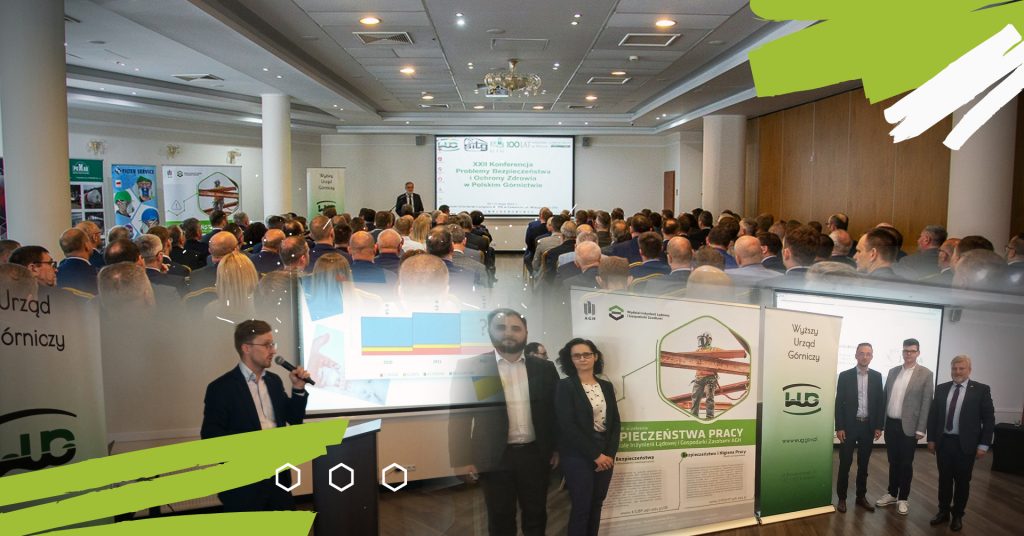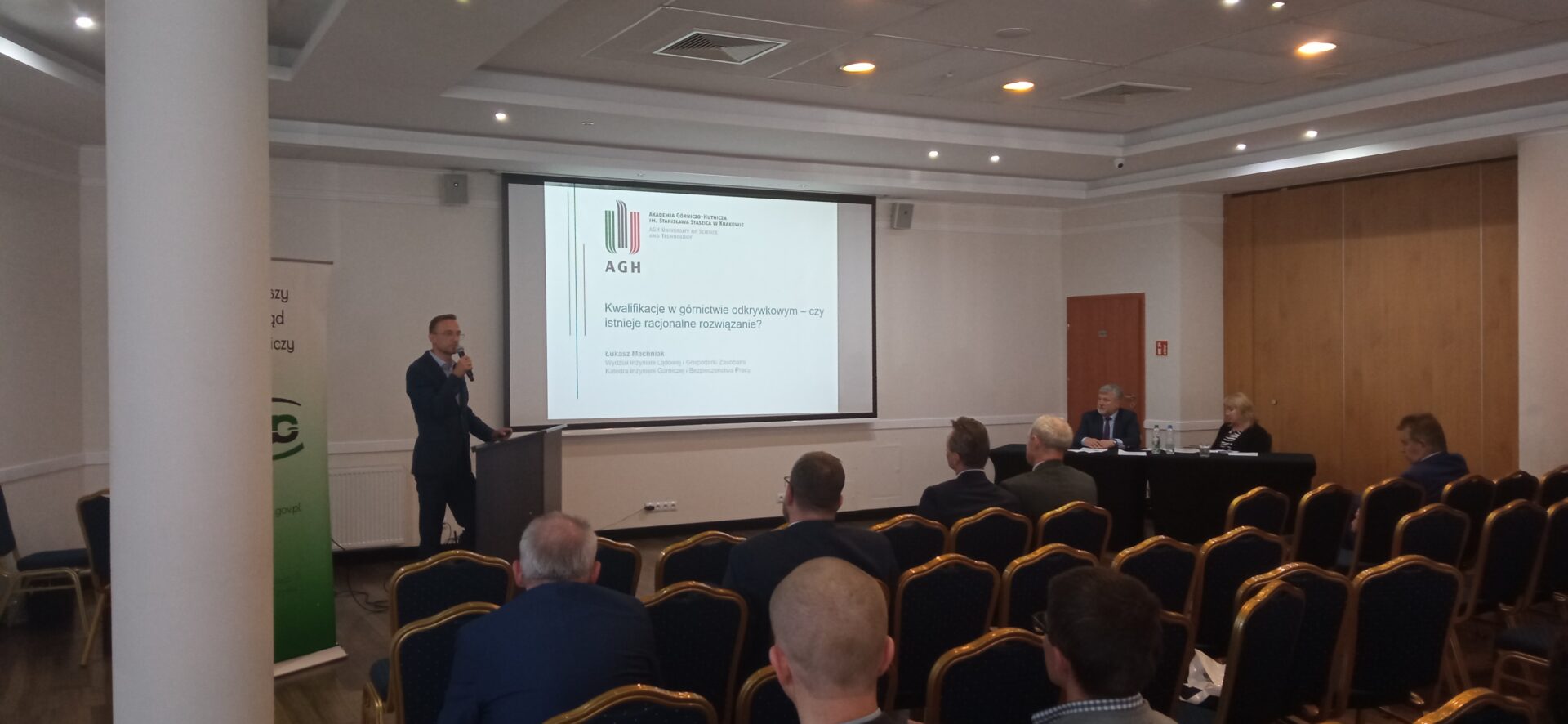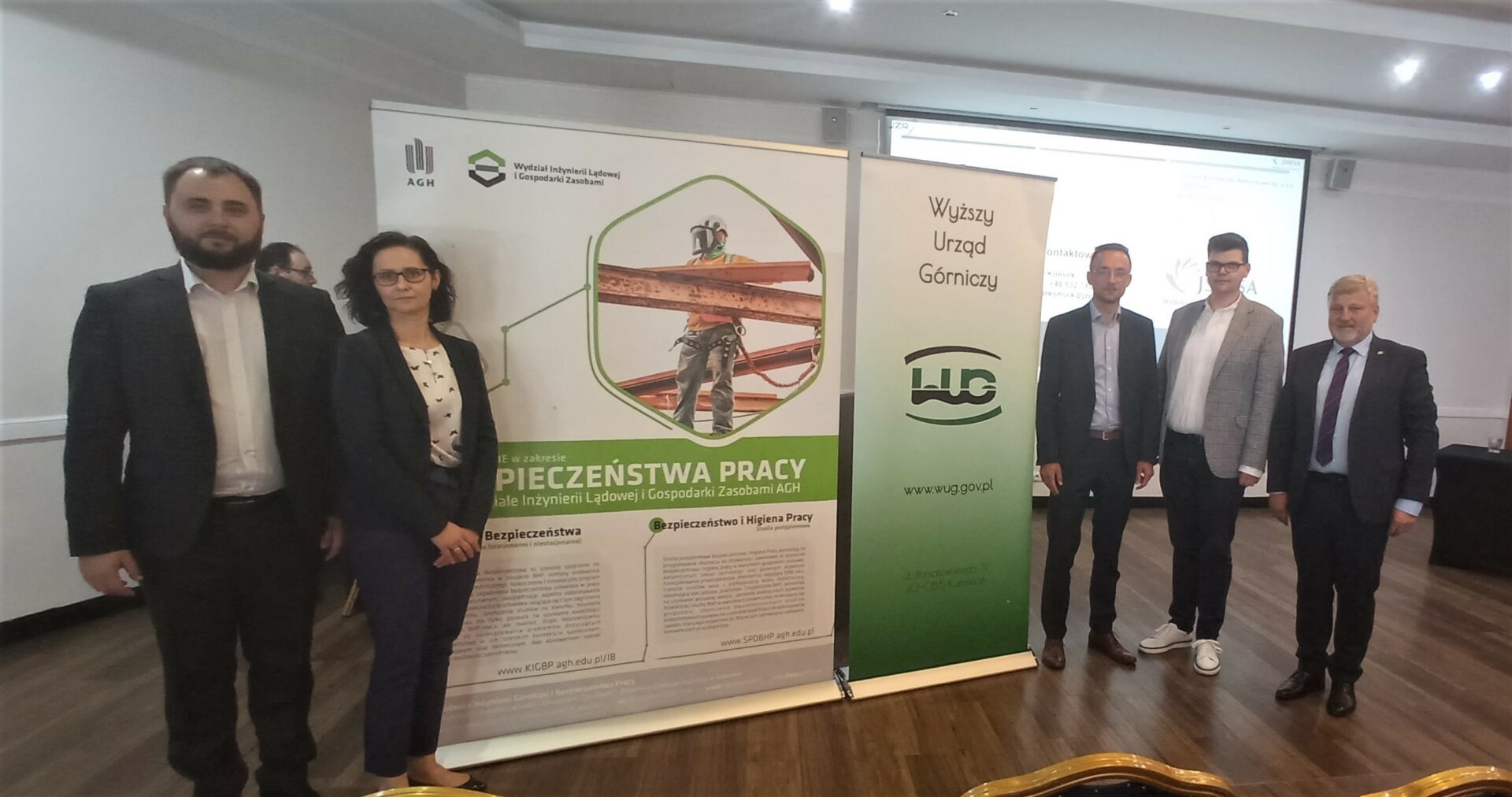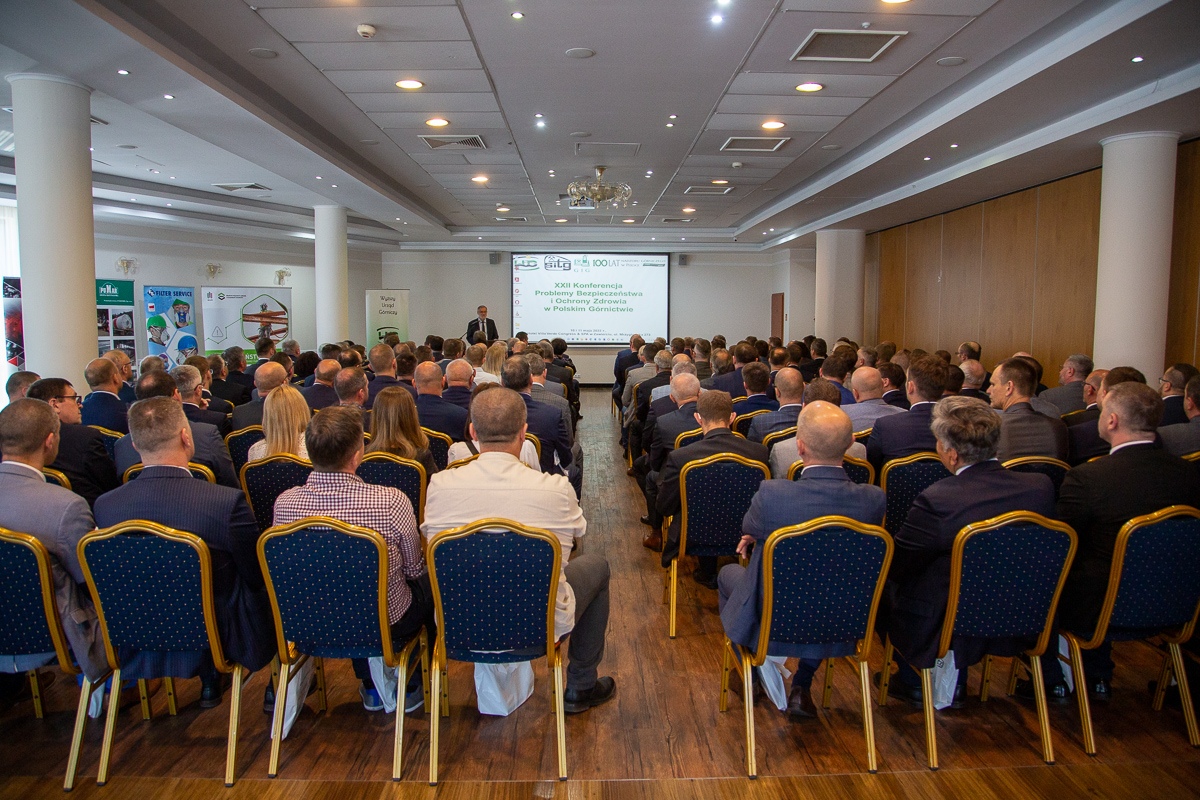
- This event has passed.
Safety first! – essential in mining
June 21 All day
Safety first
On 10-11 May 2022 in Zawiercie staff of the Department of Mining Engineering and Occupational Safety (Prof. Z. Burtan, M.Sc. M. Dworzak, Dr. Ł. Machniak, Dr. D. Nowak-Senderowska, Dr. M. Patyk and Dr. M. Sikora) participated in the 22nd Conference “Safety and Health Problems in Polish Mining” organized by the Higher Mining Authority (WUG), Association of Mining Engineers and Technicians (SITG) and Central Mining Institute (GIG).
Occupational safety is one of the basic areas necessary for the safe and effective development of the mining industry. Topics discussed during the Conference not only included the issues of occupational hazards and their prevention in mines, but most importantly also took into account the specifics of underground, open-pit and borehole mining. In each of the presented types of mines the “safety first” principle, as it was emphasized, is a priority, thus ensuring safe and hygienic working conditions is the basic foundation of a “healthy” and effective enterprise.
Sharing experience and knowledge
The conference, of which the vice-chairman of the Scientific Council was the head of the Department of Mining Engineering and Occupational Safety AGH UST, Prof. Zbigniew Burtan, every year creates an area for discussion on issues related to safety and the exchange of opinions and integration of the environment related to occupational safety in the broadly defined mining industry.
The topics of this annual conference included, among others, technical and organizational safety at work, accidents at work, work environment factors, including natural hazards, legal and formal aspects of safety in mining and preventive measures, and the very recent issues of employing foreign workers.
Safety as a core aspect of mining education
The topics discussed at the Conference by the employees of WILGZ included the issues related to the perception of occupational hazards by employees in the rock mining industry, issues of professional qualifications in surface mining, the lignite mining industry in the context of occupational safety, and occupational safety education, in particular with regards to the specifics of the mining industry. A wide range of topics, as well as relevance of the undertaken problems resulted in the fact that AGH papers were in line with current trends related to ensuring safe and hygienic working conditions in the mining industry.
Safety engineering – engineer, specialist, “safety guy”
As provided by Polish law, each person has the right to work in safe and hygienic conditions, and the employer is obliged to create such conditions, which are very difficult to provide in the mining industry – often due to a number of hazards independent from the human factor, including natural ones. The need to educate specialists in this field – who understand the risk-based approach, but also the specific conditions of the mining industry – has been fulfilled by the newly created major of the second degree “Safety Engineering”. This course, based on the knowledge and experience of the WILGZ staff, allows for targeted education, both in terms of mining industry problems and in other areas of professional activity (construction, environment, power engineering, warehousing, fire protection, use of hazardous materials, etc.).
The approach to safety taken in the “Safety Engineering” degree program, which includes a complex view of human safety, the environment and the technical facilities of the work environment, will allow the graduate to have a broad understanding of risk and to take actions related to the elimination and reduction of unacceptable risks.
Starting in October 2022, WILGZ will educate safety professionals who will not only possess the skills to interpret formal and legal regulations, but also to measure and interpret work environment factors, ergonomic assessment, OSH management systems, their auditing and safety culture, among others.
“Safety Engineering” at the AGH UST is the education of high-class master engineers, because their industry knowledge gained from engineering studies will be supported by knowledge, experience and skills in terms of providing in a wide sense the safety of the employee, enterprise, process, service, product.








